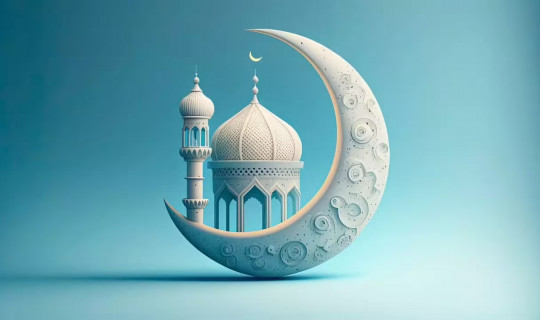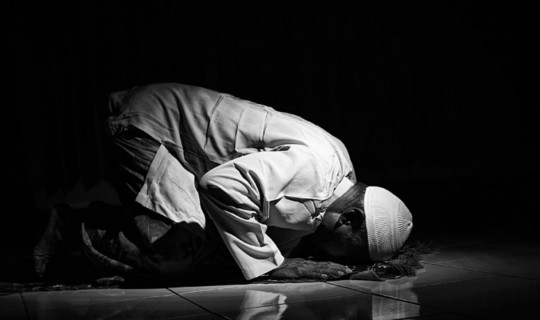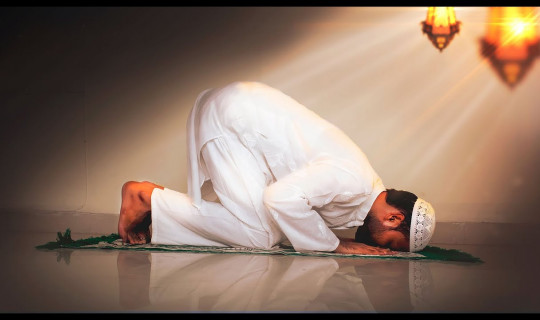
Eid al-Adha: The Festival of Sacrifice in Islam
Key information: the Festival of Sacrifice, Hadith on Sacrifice, On the virtues of sacrifice, Origin of Eid al-Adha,Significance of Eid al-Adha, Conclusion
Eid al-Adha, also known as the Festival of Sacrifice, is one of the most important Islamic holidays celebrated worldwide. It commemorates the willingness of Prophet Ibrahim (Abraham) to sacrifice his son as an act of obedience to Allah, before Allah provided a ram to sacrifice instead.
Qur’anic Reference
The story of Prophet Ibrahim’s sacrifice is mentioned in the Qur’an:
“And [mention, O Muhammad], when he reached with him [the age of] exertion, he said, ‘O my son, indeed I have seen in a dream that I am slaughtering you, so see what you think.’ He said, ‘O my father, do as you are commanded. You will find me, if Allah wills, of the steadfast.’”
— Surah As-Saffat (37:102)
Allah rewarded Ibrahim’s obedience by replacing his son with a ram for sacrifice:
“And We ransomed him with a great sacrifice.”
— Surah As-Saffat (37:107)
Hadith on Sacrifice
The Prophet Muhammad (peace be upon him) emphasized the importance of sacrifice during Eid al-Adha:
“The son of Adam does not have any deed more beloved to Allah than a righteous sacrifice. Indeed, on the day of sacrifice, the angels send blessings upon the one who performs it.”
— Sahih al-Bukhari
Origin of Eid al-Adha
The festival commemorates the story of Prophet Ibrahim (Abraham) and his son Ismail (Ishmael). According to Islamic tradition, Allah (God) tested Ibrahim’s faith by commanding him to sacrifice his beloved son Ismail. Demonstrating complete obedience and trust in Allah, Ibrahim prepared to carry out the command. However, at the last moment, Allah replaced Ismail with a ram to be sacrificed instead. This event symbolizes submission to God's will and unwavering faith.
Significance of Eid al-Adha
Eid al-Adha is not only a time for sacrifice but also a period of gratitude, charity, and sharing. Muslims around the world slaughter an animal such as a sheep, goat, cow, or camel and distribute its meat among family, friends, and those in need, symbolizing generosity and compassion.
The Prophet Muhammad (peace be upon him) emphasized the spiritual significance of this festival and the act of sacrifice in several sayings:
On the virtues of sacrifice:
“For every hair of the sacrificed animal, you will have a reward.”
— [Sahih Muslim]
The Prophet Muhammad (peace be upon him) said about sacrifice:
“The most beloved of deeds to Allah on the Day of Sacrifice are the takbir (saying Allahu Akbar), the tahmid (saying Alhamdulillah), and the tasbih (saying SubhanAllah).”
— [Ibn Majah]
The Sacrifice Tradition
During Eid al-Adha, Muslims who can afford to do so sacrifice an animal such as a sheep, goat, cow, or camel as an act of worship and obedience to Allah. The animal must meet certain health and age requirements to be eligible for sacrifice. The meat from the sacrifice is divided into three parts: one-third for the family, one-third for relatives and friends, and one-third for the poor and needy. This practice encourages charity, generosity, and social unity.
The Prophet Muhammad (PBUH) also encouraged sharing and helping others during this time, saying:
“Whoever has the means to offer a sacrifice but does not do so, let him not approach our place of prayer.”
— [Sahih al-Bukhari]
“The meat of a sacrificed animal does not reach Allah unless you feed the poor, the needy, and the relatives.”
— [Al-Adab Al-Mufrad]
This underlines the social responsibility of charity and sharing during Eid.
On Eid al-Adha, Muslims sacrifice a permitted animal such as a sheep, goat, cow, or camel to show gratitude and obedience to Allah. The sacrifice commemorates the story of Ibrahim and serves as a reminder to be willing to make sacrifices for the sake of Allah and humanity.
Conclusion
Eid al-Adha is a celebration of faith, obedience, and charity. It reminds Muslims of the virtues of sacrifice and compassion, encouraging them to renew their commitment to Allah and support those around them. Through the example of Prophet Ibrahim and the teachings of the Prophet Muhammad, this holiday remains a powerful spiritual and social occasion in the Muslim world.
It reminds believers of their submission to Allah’s will and encourages them to trust in His mercy and provisions.
References / Sources
1. Sahih Muslim
o One of the most authentic collections of Hadith, compiled by Imam Muslim ibn al-Hajjaj.
o Hadith references related to the reward for every hair of the sacrificed animal and the forgiveness associated with Eid prayers are from this collection.
2. Sahih al-Bukhari
o Another primary and authentic Hadith collection by Imam Muhammad al-Bukhari.
o Includes sayings of the Prophet Muhammad (PBUH) emphasizing the importance of sacrifice.
3. Musnad Ahmad
o A large Hadith collection compiled by Imam Ahmad ibn Hanbal.
o Contains narrations about charity and the significance of sacrifice.
4. Sunan Ibn Majah
o One of the six major Hadith collections (Kutub al-Sittah).
o Provides hadith on the virtue of takbir and beloved deeds on Eid.
5. Al-Adab Al-Mufrad by Imam al-Bukhari
o A Hadith collection focusing on ethics and manners, which includes narrations about sharing the meat of the sacrificed animal.
6. The Qur'an (implied)
o The story of Prophet Ibrahim’s willingness to sacrifice his son is mentioned in several verses of the Qur'an, especially in Surah As-Saffat (37:100-113).
Abobakirov Muhammadyusuf
HIDOYA o`rta maxsus islom ta`lim muassasi
54- guruh talabasi



